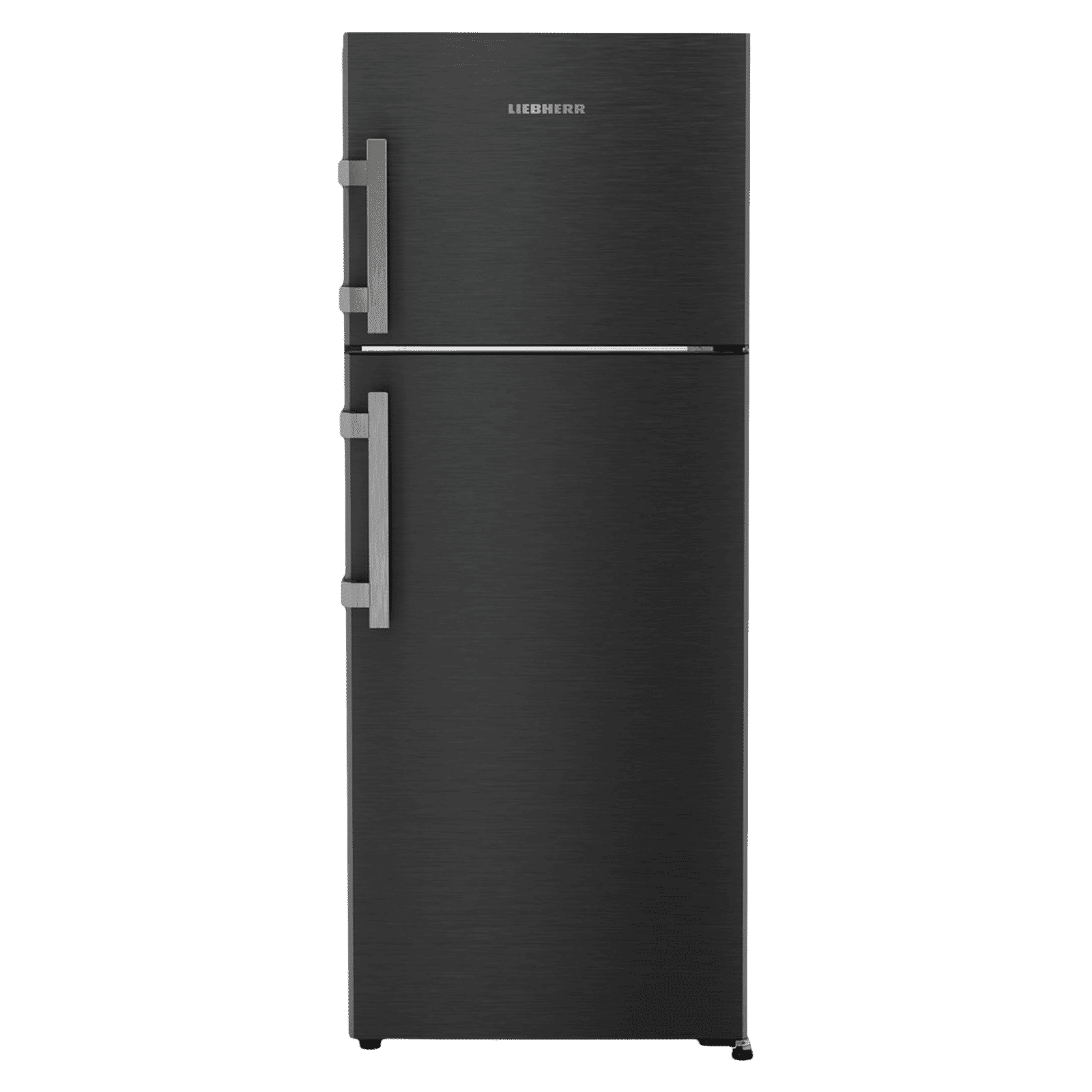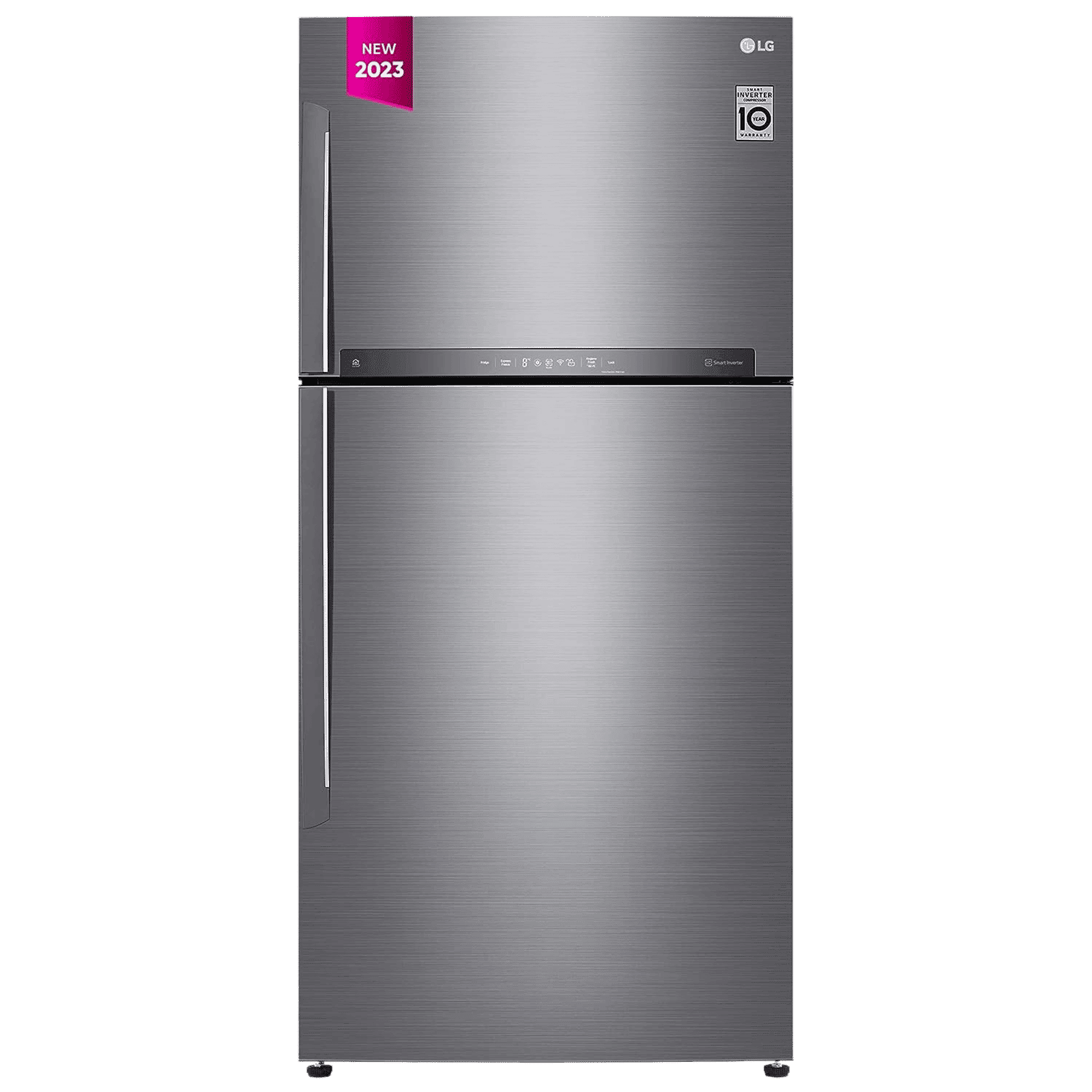
Home Appliances
•04 min read

Buy LIEBHERR Pure 245 Litres 2 Star Frost Free Double Door Refrigerator with Anti-Bacterial Gasket (TCLbsB 2411, Black Steel) online at best prices from Croma. Check product details, reviews & more. Shop now!
Choosing a new refrigerator can be a daunting task, especially when technical terms like inverter fridge means start flying around. You might have wondered, what is an inverter fridge and why is it so popular among savvy shoppers today? In this post, we break down the technology behind inverter refrigerators, explaining how inverter technology in refrigerators works, their benefits, and what sets them apart from regular refrigerators. By the end, you will have a clear understanding of inverter fridges and be well equipped to make an informed purchase decision.
An inverter fridge is built on state-of-the-art technology that utilises an inverter compressor in fridge systems. Unlike traditional compressors that run at a single constant speed, inverter compressors adjust their speed based on the cooling demand. This variable-speed operation ensures that the refrigerator maintains the desired temperature without unnecessary energy surges.
The integration of inverter technology in refrigerators is primarily to enhance energy efficiency and prolong appliance life. Not only does this technology help in precise temperature control, it also ensures that energy-efficient refrigerators use power more judiciously. As a result, users often experience lower electricity bills and a quieter operation at home.
At the heart of an inverter fridge is a compressor that dynamically varies its speed to match cooling needs. Unlike fixed-speed compressors that continuously switch on and off, inverter compressors adjust the cooling output gradually, making them much more efficient. This variation is key when it comes to how inverter refrigerators work because it ensures a consistent temperature with minimal energy consumption.
Features of inverter compressors include precise temperature control, improved energy savings, and quieter operation. These features translate to a range of benefits such as enhanced food preservation and a reduced overall carbon footprint. The smoother performance also means less wear and tear on the components, contributing to a longer appliance lifespan.
Did You Know? Inverter refrigerators can save up to 30-50% more energy compared to traditional models, making them an excellent choice for an eco-friendly home.
One of the most touted advantages of inverter fridge technology is its impressive energy efficiency. An inverter fridge means the variable operation of its compressor leads to lower power consumption and more effective cooling during periods of low demand. This efficiency not only reduces the inverter fridge power consumption but also has a direct impact on reducing your electricity bill over time.

Buy Haier 190 Litres 5 Star Direct Cool Single Door Refrigerator with Stabilizer Free Operation (HRD-2105BIS-P, Inox Steel) online at best prices from Croma. Check product details, reviews & more. Shop now!
With the reduced strain on the compressor during operation, inverter fridges generally have a longer lifespan compared to their traditional counterparts. The technology helps in minimising excessive wear and tear, ensuring that your investment lasts longer. This makes it a prudent choice for households looking for durability and long-term savings.
Temperature consistency is crucial for food preservation. The precise control offered by inverter compressors means that your food remains fresher for longer periods. This is because the cooling system adjusts dynamically to avoid temperature fluctuations that can accelerate spoilage.
Reduced energy consumption goes hand in hand with a reduced carbon footprint. When you opt for energy-efficient refrigerators, you are making a conscious decision to minimise your impact on the environment. This sustainable approach is particularly appealing to the eco-conscious household.
The primary difference between an inverter fridge and a standard fridge lies in the compressor's operation. A traditional fridge operates with a fixed-speed compressor that frequently turns on and off. In contrast, an inverter fridge employs a variable-speed inverter compressor in fridge, which adjusts its performance to maintain optimal temperature levels. This difference is crucial when considering the difference between inverter and regular fridge.
Traditional refrigerators keep running at full power no matter whether the cooling load is high or low. Inverter refrigerators, however, power down when less cooling is required. This intelligent control not only optimises energy use but also results in significant savings on energy bills.
Another notable difference is in noise performance. Because inverter compressors operate at variable speeds, they tend to work more quietly compared to the constant on-off cycle of standard models. This added advantage makes these refrigerators appealing in households valuing a quieter environment, especially in areas like open plan living and kitchens.

Buy LG 592 Litres 1 Star Frost Free Double Door Refrigerator with Smart Inverter Compressor (GR-H812HLHM, Platinum Silver) online at best prices from Croma. Check product details, reviews & more. Shop now!
When selecting an inverter refrigerator, consider aspects such as size, design, energy ratings, and the range of features. It's important to evaluate your everyday needs and how the energy-saving characteristics of inverter technology can align with your usage patterns. Look at the actual energy consumption as it directly influences operating costs.
Modern refrigerators with inverter technology are often packed with innovative features to complement home automation trends. While selecting a refrigerator, check for smart features that can integrate seamlessly with your home ecosystem, making them a practical and future-proof choice. The ability to precisely control settings digitally is an added benefit.
Although there are many benefits of inverter refrigerators, it is also crucial to keep in mind some potential drawbacks. The initial investment in an inverter fridge may be higher compared to traditional refrigerators. However, considering the long-term savings on electricity and the increased durability, the upfront cost is often justified by the cumulative benefits received over the appliance’s lifespan.
Yes, inverter fridges are designed for superior energy efficiency, quieter operation, and more consistent cooling, making them a beneficial choice for long-term use.
An inverter fridge uses a variable-speed compressor that adjusts based on the cooling load, while a normal fridge relies on a fixed-speed compressor that runs at full capacity regardless of demand.
The primary purpose is to enhance energy efficiency and improve food preservation by using advanced compressor technology that adapts to varying cooling needs.
No, an inverter fridge still requires electricity to operate but uses it more efficiently compared to traditional refrigerators.
The evolution in refrigerator technology means that understanding what an inverter fridge means is more important now than ever. With precise temperature regulation, improved durability, and significant energy savings, inverter refrigerators are no longer just a luxury but a practical solution for modern households. As you consider upgrading your kitchen appliance, thinking about smart refrigerators with inverter technology can set you on the path to a more sustainable, cost-effective lifestyle. Moreover, for those investing in advanced home appliances, benefits such as neuCoin earn rewards and express delivery help create a smooth and rewarding shopping experience.
In summary, the technology behind inverter refrigerators offers improved energy efficiency, a longer lifespan, and enhanced food preservation. The clear difference between inverter and regular fridges makes it easier to appreciate why many households prefer these advanced models. As you weigh the benefits of inverter refrigerators against potential drawbacks, you are better positioned to make a purchase that aligns with your long-term needs and environmental values. Explore more about energy-efficient appliances and smart home solutions and discover how modern technology can help you live better.